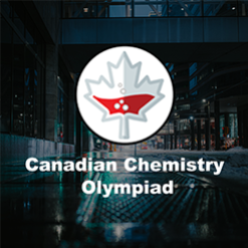我们的CCO化学奥赛辅导课程配有独家自研教材,授课老师均为海内外名校毕业,具有丰富的竞赛教学经验!
CCO课程试听
需要辅导课程的同学,可以扫码咨询,然后选择符合您需求的课程进行试听~

课程示例⇓
CCO化学奥赛辅导课程
课程课时:40H
课程大纲
Structural Chemistry 结构化学
Crystal structure: unit cell
1. Unit cell
2. Particle number in unit cell
3. Particle distance in unit cell
4. Density of unit cell"
Crystal structure: coordination & packing
* Solving question: Crystal density
1. Crystal coordination number
2. Packing efficiency
3. Close packing
4. Spinel structure
Coordination chemistry 1
* Solving question: Crystal geometry
1. Coordinate bond
2. Coordination compound
3. Magnetism
4. Crystal field theory in octahedral coordination (CFT)
Coordination chemistry 2
* Solving question: Octahedral CFT
1. Isomerism of coordinate compound
2. Jahn-Teller distortion
3. CFT in different geometry
4. Solving structural Question
Organic Chemistry 有机化学
Bond theory, resonance & hybridisation
* Solving question: CFT with distortion
1. Revision: Lewis structure & molecular geometry
2. Exception of octet rule
3. Determine Lewis structure
4. Hybridisation & bond theory
5. Formal charge
6. Resonance & conjugation
Organic 1: Representation, structure & nomenclature
1. Revision : Structure & functional group with O, N, S
2. Formal charge in organic
3. Resonance in organic
4. Carbocation & carbanion
5. Conjugation system in organic
6. IUPAC nomenclature
Organic 2: Isomerism & conformation
1. Constitutional isomer
2. Stereoisomer
3. Conformer
4. Conformational analysis
Organic 3: Reaction mechanism 1: free radical mechanism
* Solving question: Organic isomerism
1. Organic reaction transformation
2. Common organic reaction & reagent
3. 4 types of mechanism
4. Free-radical mechanism
Organic 4: Reaction mechanism 2: polar mechanism
* Solving question: Free-radical synthesis
1. Nucleophile & Electrophile
2. SN1, SN2 reaction
3. E1, E2 reaction
4. Electrophilic addition
5. Nucleophilic addition
4. Polar synthesis pathway
Organic 5: Reaction mechanism 3: aromatic substitution
*Solving question: Finding Nu- & E+
1. Aromaticity
2. EDG & EWG
3. Ortho/para vs meta directors
4. Synthesis involving benzene
Organic 6: Polymer & Biochemistry
1. Amino acid structure
2. Polymerisation
3. Isoelectric point
4. Electrophoresis
5. Enzyme catalysis
Organic 7: Spectroscopy 1
1. Combustion analysis
2. Mass spectrum
3. DBE analysis
4. IR spectrum
5. NMR spectrum
Organic 8: Spectroscopy 2 & Synthesis pathway
1. Signal splitting (coupling) of NMR
2. Solving NMR question
3. Solving synthesis pathway
Physical Chemistry 物理化学
Gas & Physical phase
* Solving question: Analytical chemistry
1. Revision: ideal gas law
2. Kinetic molecular theory
3. Van der Waals' equation
4. Partial pressure
5. Phase diagram
Kinetics advanced: Arrhenius equation & solving problem
* Solving question: Phase diagram
1. Revision: Rate law
2. Reaction mechanism
3. Integrated rate law & Half - life
4. Arrhenius equation
5. Solving Kinetics question
Equilibria advanced
* Solving question: Kinetics
1. Revision: Equilibrium
2. Solving equilibrium problem
3. Ksp & Kf
4. Revision: Acid & base
5. Polyprotic acid & Buffer
Thermodynamics advanced
* Solving question: Equilibria
1. Revision: H, S & G
2. Enthalpy & expansion work
3. Entropy & probability
4. Gibbs Free Energy & 2nd law of thermodynamics
5. Determining ΔS, ΔG & spontaneity
Electrochemistry advanced
* Solving question: Thermodynamic
1. Revision: redox reaction & cell
2. electrode potential
3. galvanic cell
4. electrolytic cell / electroplating
5. Cell potential under non-standard condition
Thermodynamics advanced: K, Ecell & ΔG
* Solving question: Electrochemistry
1. equilibrium constant & ΔG
2. cell potential & ΔG
3. Nernst equation
Revision & Solving problem
备赛的同学可免费试听扫码试听CCO免费课程~


